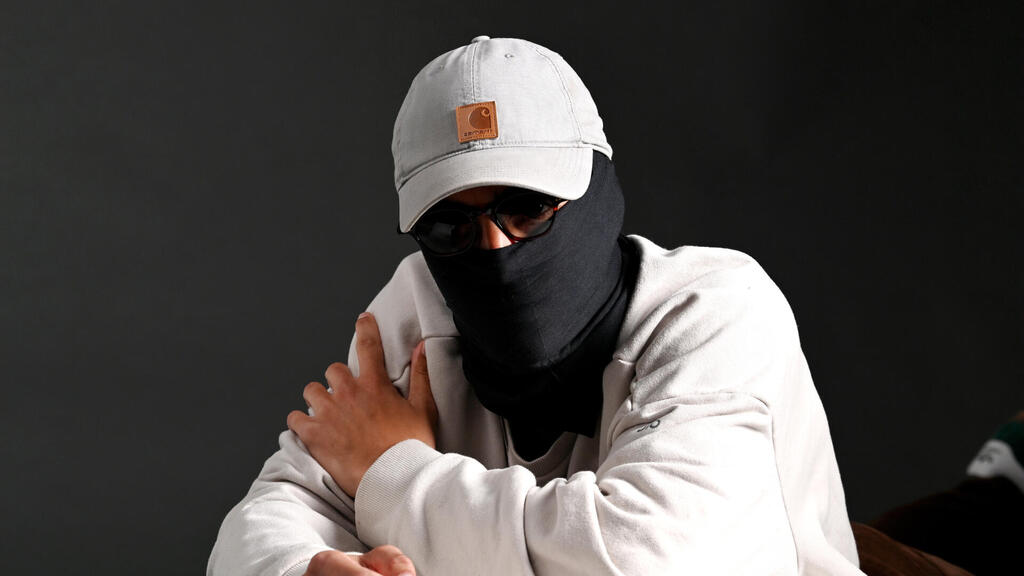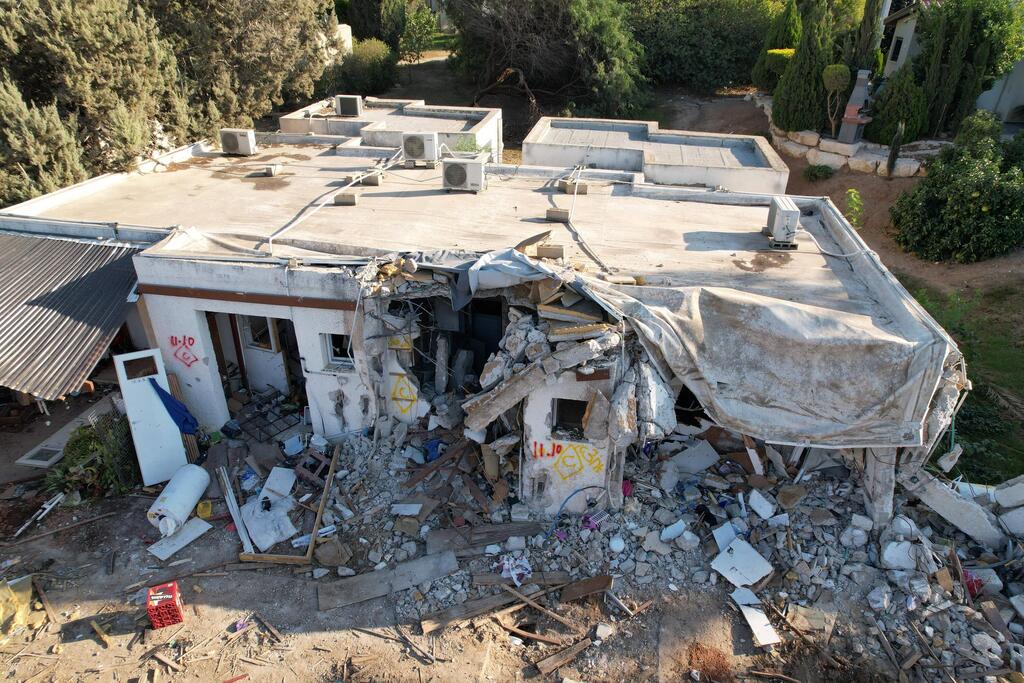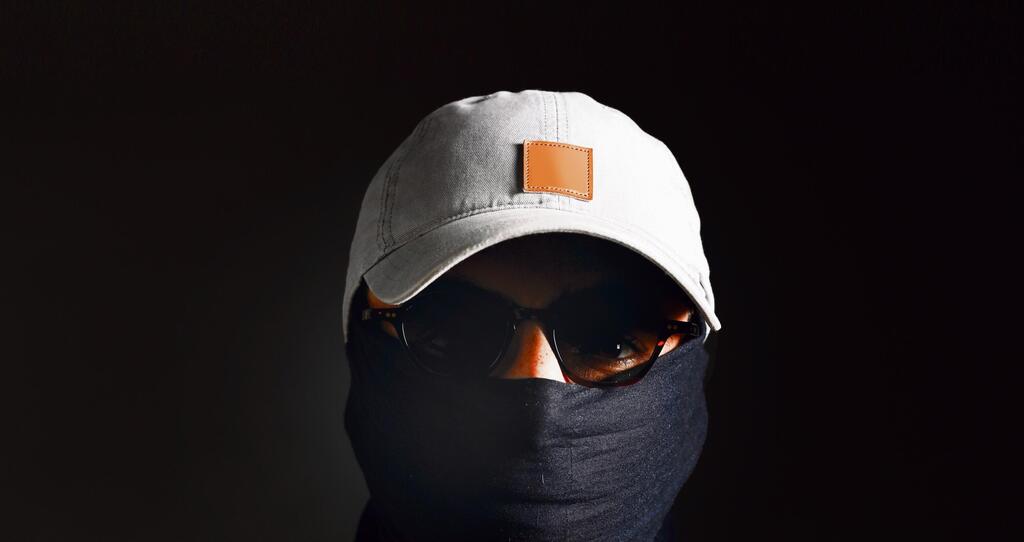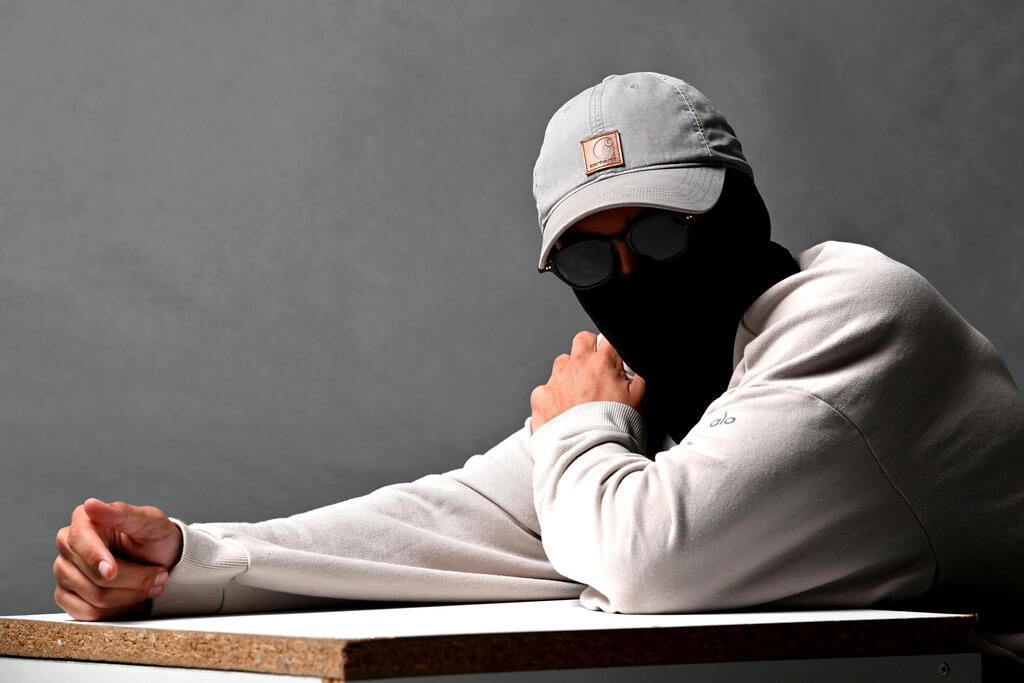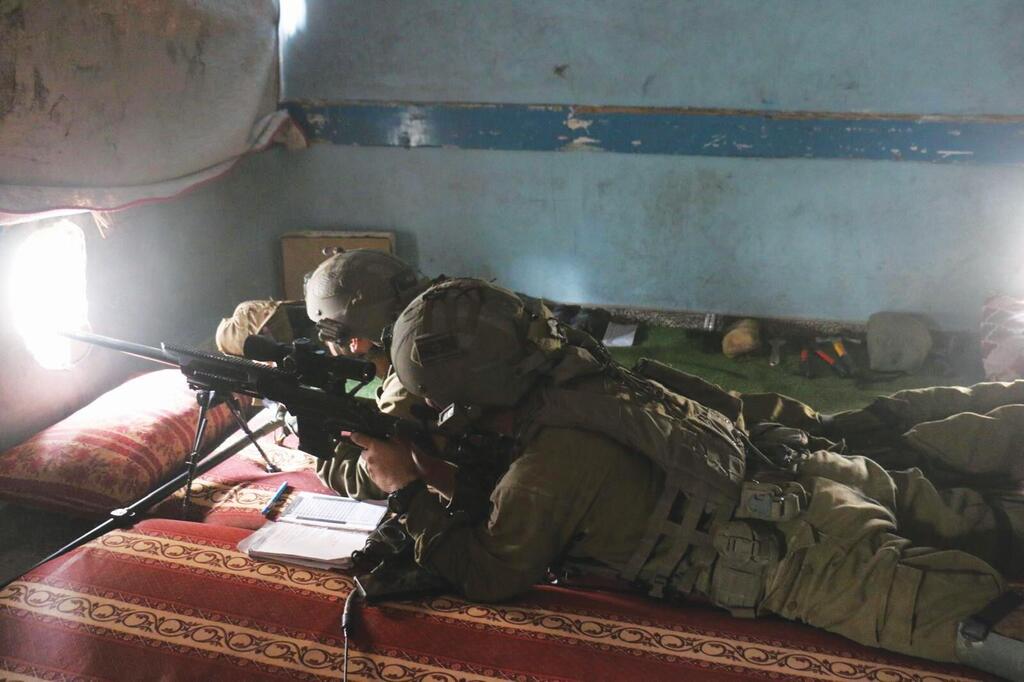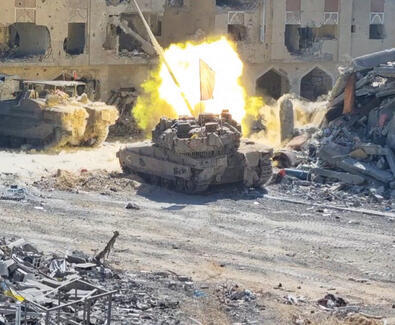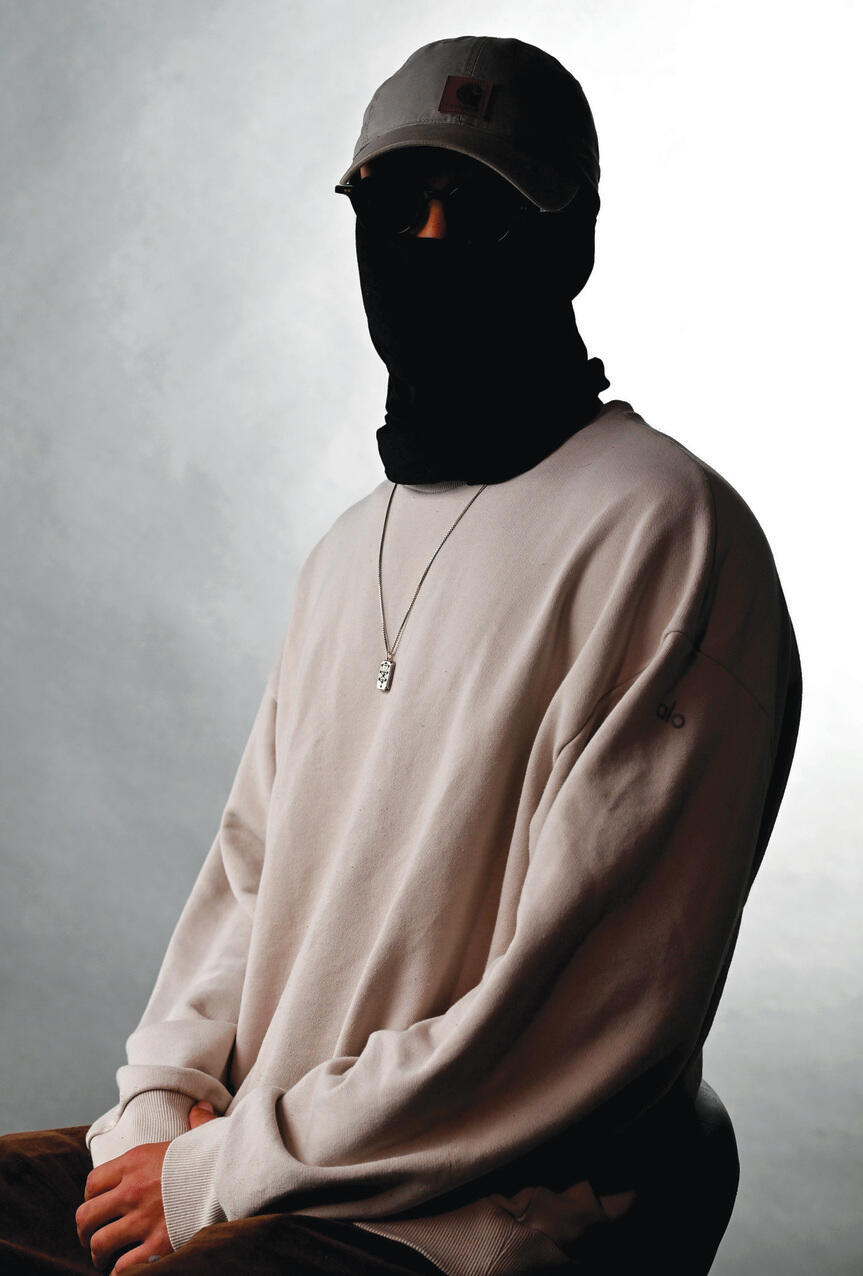Getting your Trinity Audio player ready...
After completing his combat training with the Givati Brigade and the squad commanders’ course, Sgt. Maj. Tomer (pseudonym) was on the Gaza frontline. In those pre–October 7 days, the sector was much calmer. One day, Sgt. Maj. Tomer’s commanders offered him a sniper training course. He went for it and became a sniper. He had no way of knowing that this decision was about to change his life entirely
The five-week course at Adam Training Base taught him sniping techniques, camouflage, range estimations, how to set up sniper positions and calculate the effect of wind speed on a bullet in flight. He completed the course successfully, received his sniper pin and returned as the commander of a sniper squad within his battalion.
Snipers in special forces units will find themselves in the heart of the action in the event of a targeted assassination. In routine times, the work of a battalion sniper is, naturally, important. It is, however, rather monotonous and draining, especially when dealing with riots. Most snipers will complete their service without what snipers term an “X” - an actual kill.
Sgt. Maj. Tomer loved his role and was sent to the IDF’s Sniper Championship along with two squad mates in early October 2023. They finished in first place, but were denied the championship title as one teammate had forgotten to activate his gun’s safety mechanism.
A week after the competition, October 7 came. Sgt. Maj. Tomer was rushed to the south to what turned out to be months of intensive fighting in Gaza. He would quickly rack up “X” marks, only to later realize that each one comes at a personal cost. Now, he tells his story.
The battle for Kfar Aza
Friday, the night of Simchat Torah. Around 30 childhood friends and from our pre-army academy days all met up by the Jordan River. It just happened that everyone had leave that weekend. Almost everyone there was serving in combat positions in commando, special forces and special operations units. Some of them had only just finished their training. Only I and two others were still in battalion combat units. We brought all the gear – tarps for shade, mattresses, etc. It was one big party with music, holiday meals, drinking and dancing. We stayed up late, drank more and went to sleep around 4 a.m. - totally wasted.
At 6:30 a.m., some of the guys started getting called up. The Shayetet (naval commando) guy was called first, then the rest of the special forces started heading out one by one. It was clear that something was going on, but we didn’t understand what. Then, one of the guys opened up Telegram and showed us a video.
I looked at my phone and saw a missed call from my platoon commander. I called him back but he didn’t answer. I then asked one of the girls to drive me to my base in the Golan Heights, about a 20-minute ride. It was lucky I had my uniform and gun with me. On the way, I got one of my snipers on the phone. He said: “Listen, it’s chaos here. Everyone’s getting ready, heading south to Kfar Aza.” I told him to grab my gear and that I was on my way.”
When I got to the base, around 8:30 a.m., the company was already at the gate heading out on buses. I got on the bus, which was packed full of gear. The company has a container of supervised, sensitive equipment and weapons with all the fancy gear that never comes out for training. I see they’d opened the container and dumped it all into the bus. In the aisle between the seats, there was a huge pile of MAGs, grenades, missiles and tons of crates of ammunition.
The vibe on the bus was different. The guys were singing company songs, but every few minutes, someone would see a video from the south and share it with everyone. Some of the guys looked worried, but no one really understood what was going on. I let my parents know we were heading south and that I was okay.
Suddenly, just past Ashkelon, it felt like we were entering another world. I looked out the window and saw burned-out cars and bodies on the roadside. There were bodies everywhere. It was endless. The closer we got to the Gaza border region, the greater the chaos.
When we got to the gas station at the entrance to Kfar Aza, it was clear to us that we were in a war zone. There were incessant explosions and gunfire and smoke plumes all around us. We’d been here recently on a deployment and it had felt almost pastoral. It now looked like a Vietnam War movie. We got off the bus and handed in our phones to the logistics officer. That was it. We were now cut off from the world.
Right next to us, there were two bodies of Commando Brigade soldiers. Until that moment, 11 a.m. at the gas station in Kfar Aza, I had never seen a dead person, certainly not like that, with mangled limbs, and blood on the road and walls. From then on, this was my new normal.
At the same time, off to the side, there was lots of screaming. Our forces had captured a Nukhba terrorist alive and were interrogating him. We got ready to go into Kfar Aza.
× × ×
Around noon, we lined up in two columns and began walking along the perimeter road around Kfar Aza. Not everyone understood this was war. Someone asked the platoon commander if we could cock our weapons and carry on with bullets in the chamber, ready to shoot. The platoon commander said, “Hold on, I don’t know, I’ll ask the company commander.” I looked at him, pointed at the smoke plumes, and said sarcastically, “Let’s just look around.” I then cocked his gun for him. He got it and said, “Okay”, and everyone cocked their guns.
“Three minutes later, and we’re under fire with bullets flying at us. The entire company hits the ground and drops into a ditch. Suddenly, we hear more shooting coming from our direction. It turns out that the guys from Matkal (special reconnaissance unit) had shown up in Hummers. Duvdevan, Maglan and paratroopers were also there. Everyone’s shooting. It was chaos, with bullets whizzing overhead. We were killing terrorists, advancing, killing more, advancing more. Four hours ago, I was hungover by the Jordan River. I was now in an all-out war.
This went on for two hours. Someone then said that there were still civilians trapped in the kibbutz. The company commander received the order: “Go in.”
We entered Kfar Aza, approached the first row of houses and there was a massive boom: A Qassam rocket had landed on, and had set fire to, the house right in front of us. We legged it but one of my soldiers suddenly froze. He just stood there. I realized he was in a state of shock, but gunfire and explosions were all around us. We had to get him down on the ground and take cover. Fast. I grabbed him by his bulletproof vest, threw him to the ground, and started running the “Yahalom” protocol. This is what we do for soldiers in combat shock. I explained the situation to him and gave him a simple task: I told him to go check that everyone has water in their CamelBaks and get back to me. By the time returned, he was back to himself and he was over it.
× × ×
We started cleansing each house. In urban warfare training, you enter each building and fire live rounds. You open the door and shoot. Any terrorist inside will be caught off guard. But here, we couldn’t fire, as there could be civilians inside. So, concentrating intensely, we slowly opened each door. In lots of houses, we saw signs that the terrorists had already been here: We saw their guns on the floor, pools of blood, clothing and sometimes bodies. But even when I was sure an altercation was imminent, I still couldn’t shoot on entering before confirming there were no civilians at the scene. That need for caution meant some guys in our company got hurt. We gradually advanced into the kibbutz.
As night was falling, we got to the young people’s housing in Kfar Aza. My platoon was tasked with covering and defending the area. People from the kibbutz came up to us and showed us satellite pictures, saying, “In this house, there are civilians. And this one. This one too.” We split into teams of four and set out to evacuate civilians from their homes.
The team I was in approached a house and knocked on the doors. There was no answer. After a day locked inside, they couldn’t believe it. We shouted, “IDF! IDF!” But it did no good. It turns out the terrorists were also shouting "IDF!" We had to explain. I gave my name, where I’m from and which unit. It was a long story before the person behind the door would trust me. The door suddenly opened and we saw a grandmother with two kids. We told them to “grab only the bare essentials - whatever you need most.” They rushed inside and took a few things and came to the door. We then surrounded them and escorted them back to the youth dorms.
The feeling was surreal, but also one of pride. On one hand, I was totally in the mission, on autopilot. On the other hand, when the grandmother opened the door and I was faced with a 70-year-old woman with a 20-year-old kid looking at me as if I were an angel who’d come to save her. There and then, we understood that we are the shield. We’re enveloping them with our bodies and escorting them to safety. We could still hear gunfire, and we were stepping over bodies, and were just beginning to take in quite how deranged what they’d been through was. Us too.
This went all through the evening hours. We kept bringing people out of the youth housing. Another four. Another seven. Another two, sometimes with the dog. I think the company evacuated 90-100 civilians that evening. That night, more forces showed up to evacuate the rest of the kibbutz.
× × ×
Between missions, I’d crash on the floor and fall asleep for half an hour, 15 minutes here and there. The adrenaline rush was immense, but the exhaustion more so. That’s how we kept going until the following morning. I then received an order to put up a sniper position on one of the houses. We set up on the roof, and suddenly I thought about my parents. They had no idea what was going on with me. They must be going out of their minds. I had to put their minds at ease.
I looked around and spotted a computer, turned it on and it worked, but it wasn’t connected to Wi-Fi. I remembered from computer class back in school that you type in a command to list all Wi-Fi passwords the computer remembers – and the very first one worked. I hooked up and emailed my father’s Gmail account: “Dad, I’m okay. I’m in Kfar Aza.” My father later told me he was sitting at the computer, totally stressed out, not knowing what was going on with me, when, all of a sudden, that email came in. This was good news in an ocean of bad news.
We left Kfar Aza the following morning, without yet knowing the toll the kibbutz had taken of 64 civilians murdered and 19 hostages. Soldiers had been killed and our company had wounded men. Some soldiers simply couldn’t go on after what they’d seen. They requested to see a mental health officer and left us. We understood this was just the start of the war.
Eleven days in the APC
After the battle in Kfar Aza, we were back in the battalion’s assembly area—training, shooting, doing urban warfare and fitness training. We were also desperately trying to upgrade our gear. The sniper unit carries the most equipment in the company, but ours wasn’t good enough. That’s how it is in battalions. We needed better tripods, better backpacks. We had to calibrate the guns.
We did what we had to, if not totally by the book. Nowhere to calibrate the guns? No problem. I called one of the instructors from the sniper course. “I have to calibrate before we go in,” I told her. “Get yourself over here,” she said. How was I going to get myself over there? How? There was no leave, and we weren’t even allowed to take those guns off base. We were left with no choice: One of the guys brought his own car. We tossed the M24 sniper rifles in the trunk and drove to the Adam Training Base firing range for calibration. Under normal circumstances, something like that could land you in jail. But now, no one even knew we’d left, no one knew we’d fired and no one knew we’d come back. The most important thing was that the guns would be calibrated by the time we went in.
Toward the end of October, there was talk of us going in. Emotions were mixed: There was, “Wow, I’m on a mission.” There was also the fear that, “Damn, I might not come back.” The guys started asking each other whether they should write letters to their parents. Maybe they shouldn’t. Some guys sat down and wrote letters. Others said writing a letter seals your fate. None of these options felt right to me. I’d hidden the letter I’d written my parents during the Kfar Aza battle in my dirty laundry bag that my family had come to collect. I called my brother a few days later and asked him to destroy it.
Meanwhile, at the assembly point, the news wasn’t good. A., a good friend of mine who had been there with me that Friday by the Jordan River, had taken a bullet to the jaw and was severely wounded. I knew that he was on a ventilator, sedated, and I couldn’t even go visit him. All leave had been cancelled. One of my soldiers later told me he just couldn’t go in. “It’s too much for me,” he said. He was still traumatized from Kfar Aza.
Our sniper team was down to just me and two other guys. We were assigned to the deputy company commander’s Namer armored personnel carrier (ACP) and sent into war with a company we didn’t know, in a Namer with 11 more soldiers, in addition to my two snipers. I didn’t know a single one of them, not even their names. We got to know them all very well soon enough.
"Looking back, keeping us inside the Namer wasn’t such a crazy idea. One night, a soldier from the Namer next to us had to position a glow stick on the vehicle roof. He climbed up, and a sniper shot hit his leg. His leg was blown off and what remained was hanging by a tendon. They pulled him back inside and applied a tourniquet. There was blood spraying everywhere."
We rolled out. The deputy company commander’s Namer was the last vehicle in the convoy. What came next wasn’t what we expected. For the first 11 days, we didn’t even step outside the Namer. I was sitting there, packed in with everyone else, in my helmet, bulletproof vest, kneepads and body armor. There were all these urine bottles hanging overhead since no one even got out to pee. Pretty soon, we all started to smell quite bad. There was hardly any food: at the beginning, we had jerky, but that ran out quickly. Then there were the army rations, but I don’t like anything in the rations except the halva. So, everyone in the Namer knew that all the halva was for me, as I didn’t eat anything else. The supply convoys weren’t getting to us. I dropped seven kilos by the first time I left Gaza. We were locked inside the Namer.
We slept, if you could call it sleeping - sitting up, all crammed together, on top of each other. Hours went by with nothing to do. So we read. I must have read at least three books in those 11 days. One guy would finish a book and pass it on to the next. It didn’t matter what the book was about. It was about killing time. At any given hour, there’s one person watching the Namer’s cameras, making sure terrorists aren’t coming our way. Through the monitors, you could see a small part of what was going on outside— destroyed houses for the most part. Occasionally, might get a glimpse of the sea.
Looking back, keeping us inside the Namer wasn’t such a crazy idea. One night, a soldier from the Namer next to us had to position a glow stick on the vehicle roof. He climbed up, and a sniper shot hit his leg. His leg was blown off and what remained was hanging by a tendon. They pulled him back inside and applied a tourniquet. There was blood spraying everywhere. We found ourselves sitting there wondering whether this was the mission. Sitting in a Namer for 11 days?
I lost all sense of time. One day, we suddenly received an order to get out of the Namer. The first commando unit disembarked on foot into the target and was immediately hit by an RPG. Our Namer was closest, so we went out to evacuate them. As I got closer, I saw total chaos, with dead and wounded lying there on the ground. We started evacuating them, and I then recognized one of the dead—a guy I knew, a huge guy. I saw his body, riddled with holes, covered in blood.
I was torn apart inside. Right there, in my hands, was someone I knew. Minutes ago, he was conducting an assault, and now he was a corpse. But I quickly pulled myself together. We had a mission, and my soldiers’ eyes were on me. You can't display weakness. And honestly, it’s terrifying to even let yourself be scared. Once those kinds of thoughts start, it’s hard to get them out of your head. I’ll deal with it when we get back to Israel. I’ll deal with it when the war ends. That’s how you think, and that’s how we all talked among ourselves.
After 11 days, at long last, we were assigned a mission of our own. We were to raid a three-story school building in Beit Lahia, which, according to intelligence, was housing terrorists.
Cleansing the building was a slow process that took all night. At dawn, I received my first direct combat order: I was told to set up a sniper position in the school, which I did. That’s west, my coverage direction. I darkened the room, camouflaged the firing slit, prepared a range card (a list of targets and distances to allow quick sniper response). I even arranged carpets on the floor to make it more comfortable. Snipers can lie in position for hours, and comfort definitely matters.
We’d been awake for around 30 hours, so I sent the soldiers to sleep and took the first watch. It’s a two-hour shift followed by four hours of rest, but I planned to stay on longer so the guys could sleep. Over the radio, I quietly asked the tank beneath me whether anything outside looked like a sniper post. "Nothing," they replied.
I got into position. On full alert, I scanned the surrounding buildings and noticed movement just outside my sector. I zoomed in and saw a terrorist sniper positioning his gun on a window ledge. He had a clear line of fire to all the tank crew beneath me, who were working on their tank, fully exposed. He was right in my line of vision, preparing to shoot. They’d taken away my walkie-talkie and my commander’s wasn’t working. I was the only person who could avert a disaster here.
With adrenaline running through the roof, I knew my first shot had to hit. If it didn’t, he’d either flee or, worse yet, shoot at the Armored Corps guys. I quickly adjusted my clicks, calculated the wind, breathed in, breathed out and fired a single shot.
Boom. I hit him in the head and he fell. I also saw his gun fall from the building.
I stayed in the scope for another 30 seconds to make sure there was no one else there. When all was clear, I rushed to the walkie-talkie and called the tank crew: “Get back into the vehicles. There are terrorists in the area!” I then called a tank unit and told them exactly where the sniper had been. They fired a shell to finish it off.
That was the first terrorist I killed. People came over, excited. “Damn, you got an X.” There would be many more. In other squads, we weren't always as successful - partly due to sheer exhaustion, partly due to manpower shortages. There simply weren’t enough soldiers, and certainly not enough snipers. Some had been wounded; others had broken down mentally. No one is to blame. War is shit.
Kill zone: Shifa Hospital
We went into some other school, about 500 meters from Shifa Hospital. The area in front of the hospital had been cleared, but we knew Shifa still housed lots of terrorists, and possibly even hostages. The Navy commandos were supposed to raid it. Our job was holding the area until then.
"Before this, we’d had maybe one terrorist per day, now it was one every four hours. With no emotion, I take aim at him, breathe in, breathe out, steady myself. Boom. He’s down. With the exception of one time when a soldier of mine missed, every single one was taken down."
We built a sniper post. Everything was becoming routine: darken the room, camouflage the slit, prep the range card. We even set up a little pantry so that we could always remain in position. We had 500 meters all to ourselves. This was an important corridor to Shifa, and we couldn’t afford to let a single terrorist through.
And they came. This also became routine. On autopilot, I’d see a terrorist in the crosshairs, adjust the clicks, fire, take him down. That was it. In this area, there are no civilians, only terrorists. The order was that anyone entering the sector was a dead man. And they kept coming, one after another. We took them down, and the street filled with bodies, all still clutching their weapons. Before this, we’d had maybe one terrorist per day, now it was one every four hours. With no emotion, I take aim at him, breathe in, breathe out, steady myself. Boom. He’s down. With the exception of one time when a soldier of mine missed, every single one was taken down.
One morning, just before the Shifa raid, a man entered our corridor pushing another man in a wheelchair. Until then, every person I had shot had been an armed terrorist. Now, two people entered my line of vision, and one was in a wheelchair. I didn’t know what to do. At that moment, one of my soldiers was in the sniper’s scope, and I was standing beside him. I called the company commander, who ordered us to take out the one pushing the chair. My soldier fired, and he fell. Then the man in the wheelchair pulled out a gun from the blanket he had covering him. I clearly saw him pulling out a gun. I reported it to the company commander, who ordered us to kill him too. My soldier hesitated. I said, “Give it to me.” I took the shot and he fell from the wheelchair.
That night was the first time we asked each other: “Wait. What if he wasn’t a terrorist?” We’d followed orders. We didn’t make the call, but we were the ones who pulled the trigger. That’s when I began losing it. I couldn’t sleep that night. I lay there on the mattress, in my bulletproof vest, helmet and boots, rerunning the scene in my head, over and over. “Should I, or shouldn’t I have shot the man in the wheelchair?” I finally fell asleep and woke up drenched in sweat.
The next morning, back in position, we saw an elderly man with a cane. We didn’t shoot. I called the commander: “An old man entered the corridor. Maybe he’s lost?” He said, “Okay, hold your fire for now.” I stayed with my target on him. The old man suddenly approached a van, set fire to it. There were huge flames. He then tossed his cane and dashed into an alley. We realized he was a terrorist sent to destroy that vehicle. Perhaps it contained intelligence or evidence—but it was too late. He was out of our sight by this stage. He’d gotten away. These are a sniper’s dilemmas.
× × ×
For the first time since entering Gaza, we returned to Israel one Friday. At the battalion assembly point, an argument erupted about whether they’d let us go home or not. The soldiers couldn’t understand what the problem was. After all, we were already in Israel. It later all became clear: whenever we went home, fewer would return. Soldiers’ families, girlfriends and parents would push them to stay. One would have to visit a wounded friend; another just needed some time to himself. Everyone had a story. At the end of the day, the army runs on manpower and they need everyone, so they’d rather we don’t see our homes at all.
After all the arguing, it was decided that the entire battalion could go home. I came home to a house full of friends, whoever wasn’t in the army. There was music playing and everyone started crying. It all felt very surreal. That whole weekend at home, I felt an enormous dissonance: only yesterday, I was in full gear 24/7, sleeping in my boots, staying alert even during rest. Any given moment could demand I shift from zero to a hundred. At any moment, we could be hit by an anti-tank missile. This had gone on for a full month. And, I was at home, there was music playing, and I had to shift from a hundred to zero.
That evening, I went to synagogue, but refused to go without my gun. I walked there in my Shabbat clothes, gun in hand. And there I was, in my own neighborhood, scanning the buildings, searching for weak spots, as if I were back in a kill zone in Gaza.
Staking out Sinwar
Over the next few months, I went in and out of Gaza every few weeks. You quickly get used to Gaza, its sights, sounds and smells. Most operations became routine (though even the “routine” is a bit crazy). Occasionally, a special mission would come up, like the time they woke me up one night and told me there’s an operation to kill Yahya Sinwar.
Urgent intelligence had come in to the effect that Sinwar was expected to pass near our location. These types of operations usually go to special forces, but the Givati Reconnaissance Unit was closest, so the mission was assigned to them. They were given 90 minutes to set up a stakeout above the route, without anyone knowing you're there. One of the reconnaissance platoons was to sneak in under the cover of night, take over a strategic building, and they were looking for snipers. My squad had a good reputation as we’d taken out so many. As we were nearby, they teamed us up.
With all the night vision gear, we set out in the dead of night. No flashlights. No talking. The building was captured clean, with no one in the vicinity noticing. We set up the sniper nest on the roof. Everything had to be ready before sunrise.
And it was. The reconnaissance unit took the building and up top, by first light, we’d set up a perfect sniper position. When would Sinwar show up? “In the coming hours,” they told us. “You don’t just shoot, even if they’re armed. But any armed man close to Sinwar’s age, you shoot him, even if his face is covered. It could be him in disguise.”
I entered the sniper scope and saw terrorists on the route with guns, some with RPGs, others on motorbikes. I was looking at a highway of armed men—all definite targets. But we were waiting for Sinwar.
"I’ve had 27 moments where I was watching a living person who had no idea I was watching as I was hidden 500 meters away, peeking out of a window, sometimes in total darkness. And I squeezed the trigger, and a second later, they hit the ground. Dead. And I stayed in the sniper scope, watching them. In Gaza, no one removes the bodies of terrorists. I sometimes recall the faces of men I’ve killed."
At some point, intelligence came in that Sinwar wasn’t happening. But we were already there. Maybe we’d still get some terrorists. The order approved fire—on condition we didn’t expose the position.
From that moment on, it was open season on armed terrorists. From about 500 meters, I spotted a gunman on a motorbike. I breathed in, breathed out and clicked. Bam. Down he went. Over and over. They dropped one after the other, never realizing where the fire was coming from, and we were picking them off one by one.
We suddenly heard voices from the lower floors. We signaled silence and focused. It’s a man and two women, probably not terrorists, just quickly taking cover. But if they saw us and ran out screaming, the whole sector would be full of terrorists in a matter of minutes. We were 18 soldiers alone in the building, with no IDF forces for hundreds of meters. This was a serious dilemma.
The dilemma was quickly resolved: the man saw us and ran away. Without hesitation, the company commander and his team chased after him. They caught the Gazan, cuffed him and brought him into the building and we returned to our firing positions.
That stakeout was nuts. Typically, you might get one terrorist a day.Iin a “hot” stakeout, you’d get one every few hours. Here, it was one every few minutes. I even took pictures of some of the observation log to truly believe I had actually been in something like this:
- 06:56 – N. fires, 300 meters west, hits leg
- 06:57 – HQ company commander eliminates targets outside the zone
- 07:00 – A. fires on the move, eliminates two armed men
- 07:04 – B. executes headshot – hit
- 07:33 – Shot fired - hit
And so it went on and on and on. Sinwar didn’t show up, but we stayed an extra 12 hours. There was a never-ending flow of armed men, and they just kept falling. Dozens of them. I personally took down 12. We worked with the reconnaissance sniper team. We covered the west. They covered the north. If a terrorist fled my sector, they’d get him. If a militant fled their sector into mine, I’d close in on him. One squeeze on the trigger, and he was down.
That was the craziest stakeout I’ve ever been in. It’s also the moment I truly felt something in me had changed.
You have PTSD
One book that came my way in the Namer when we went into Gaza was Paulo Coelho’s The Alchemist. In the first month, I wrote my sniper log on its cover. We keep these records so as to learn from every incident. I consequently had detailed documentation of every terrorist I’d killed: distance, precise conditions, point of impact. This means I know exactly how many “X’s” I have. In the Sinwar stakeout alone, I took down 12 terrorists. Before that, 15 more. A total of 27 kills. For a sniper, that’s extreme.
And I started telling myself that this isn’t something that just vanishes into the wind. I was taking human lives. Sure, they’re evil people. They deserve to die. And still, I’m killing them. When the number became so high, I felt like American Sniper, that movie about legendary Navy SEAL sniper Chris Kyle. Over his entire decade-long service, he took down 160 terrorists. Here I am, and in just a few weeks. I’ve taken down 27. That’s just crazy
And then, out of nowhere, I started thinking: what am I doing here? What am I doing at all? I’m a 20-year-old kid who joined the army and somehow became a sniper… and then somehow ended up in a war… and in no time at all, I’ve killed 27 people. Is that bad? Is it good? Maybe it’s not good? I began replaying every shot in my mind. Should I have been more cautious? Should I have questioned some of the orders to fire?
I’ve had 27 moments where I was watching a living person who had no idea I was watching as I was hidden 500 meters away, peeking out of a window, sometimes in total darkness. And I squeezed the trigger, and a second later, they hit the ground. Dead. And I stayed in the sniper scope, watching them. In Gaza, no one removes the bodies of terrorists. I sometimes recall the faces of men I’ve killed.
8 View gallery
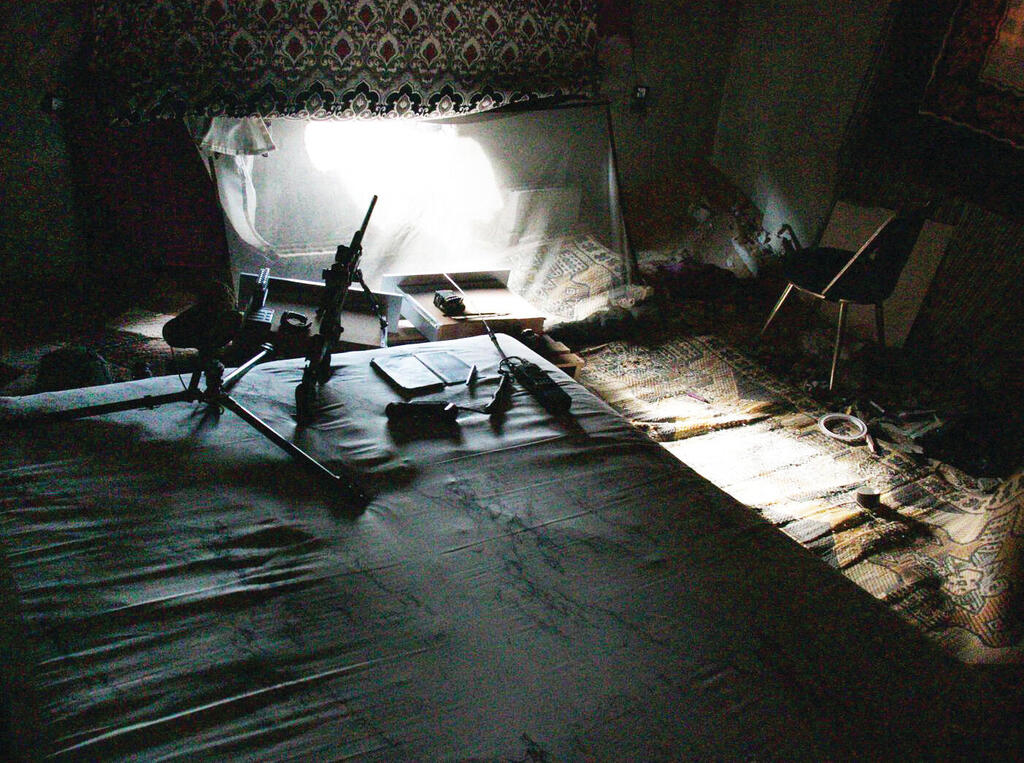

One of the sniper positions Tomer set up in Gaza. 'I felt something in me was changing'
Most of the time, you’re operating like a robot on autopilot. You kill, have a cigarette, kill, eat lunch, kill, make some coffee… and then, after that Sinwar stakeout, I stopped. It hit me. What the hell is this?
That stakeout was my trigger. That’s when it clicked. We were in March—five months into the war—when I was home for a four-day leave. The dissonance hit once more. On the surface, I was thrilled to be home, but when I went to bed, I couldn’t sleep. This had never happened to me before. I lay there, thoughts racing, sweating, eyes fixed on the ceiling, tossing and turning, running war scenarios through my head as if terrorists were about to burst through the door. I kept telling myself: Relax, you're home. The first night, I thought maybe my body clock was off. Perhaps, I’m just jet-lagged from my irregular sleep patterns in Gaza. But the same thing happened the following night. I couldn’t sleep. I got out of bed at 4 a.m. and everything was black. I felt I was about to faint. I lay there on the floor with no idea what was happening. Then the flashbacks started.
Flashback: a friend from my company getting hit in Gaza by friendly fire from a friend’s machine gun. I was the medical team leader. I ran to him with the paramedic. Found him lying on the ground. I could see the entry wound in his back. There was a was no external bleeding. I then see an exit wound in his back with a little bleeding.
I tried talking to him. He was lying there, not moving, not responding. We opened the stretcher, lifted him up and began running. We tried doing everything as fast as we could. Then, in all the panic, boom—he fell off the stretcher. And that night at home, I was really losing it. The moment the bullets hit him, I didn’t have my knee pads on, so I stopped for a few seconds to put them on. And I kept wondering if maybe he died because of me.
× × ×
One evening, I was out with friends in Tel Aviv. All the bars were packed. People were laughing and having a good time. And I’m still stuck in my war movie. I realized there’s life outside. At first, I was angry and I commented to my friends, “How can they be partying like this when we’re out there fighting?” Later that night, though, it all flipped. “You know what? Great. Thanks to us fighting there, civilians can lead normal lives, go to work and go out at night.”
"The day before I was supposed to return to my unit, I was driving alone and suddenly started screaming and crying. I stopped and thought to myself: This isn’t me. I don’t know who I am anymore. I was paranoid. I thought everyone was a terrorist. I was tense and on edge. I felt the world had ended, that everything from now on would be terrible, everyone would die and that my life was over. It was unbearable. I was going crazy. I realized I needed help right now. If I didn’t get help, I had no way of telling how bad this would get."
For a moment, I felt like I was king of the world again. I was pleased with myself for having come back from Gaza and made all this possible. But we then tried getting into a club and the host at the door wouldn’t let us in. I just lost it. I tried telling her I’d just gotten back from Gaza, but she didn’t care. She brushed me away and I went nuts. Again, the dissonance. Back and forth, back and forth.
That weekend of leave, I was a shell of myself. I’d wake up in the morning, and everyone around me, my family and friends, could see something was off. “Are you okay? What’s going on?” I didn’t know what to say. I didn’t even know myself what I was feeling.
It got stronger and stronger. The day before I was supposed to return to my unit, I was driving alone and suddenly started screaming and crying. I stopped and thought to myself: This isn’t me. I don’t know who I am anymore. I was paranoid. I thought everyone was a terrorist. I was tense and on edge. I felt the world had ended, that everything from now on would be terrible, everyone would die and that my life was over. It was unbearable. I was going crazy. I realized I needed help right now. If I didn’t get help, I had no way of telling how bad this would get. These were thoughts that could go too far.
I decided enough was enough. I couldn’t go on like this. I did an online search trying to find out what an army mental health officer was, and found a hotline number. I called and said: “Hi, I’m a soldier in Givati.” I told them what I was feeling. “I’m really confused, and I’m supposed to go back into Gaza tomorrow. I don’t think I can go back like this.” They took my case very seriously and booked me an appointment with a mental health officer.
Get the Ynetnews app on your smartphone: Google Play: https://bit.ly/4eJ37pE | Apple App Store: https://bit.ly/3ZL7iNv
I felt like a failure for going to see a mental health officer. Before my first appointment, I checked a thousand times to make sure no one knew I was there, that there’d be no record. I got to the base where she was receiving patients. I looked around, made sure I didn’t recognize anyone and went in. I told her how I felt, and she said something that changed everything: “These are PTSD symptoms.”
That was the first time I heard that phrase applied to me. I’d heard it about other people. To be honest, I had kind of made fun of it. I thought PTSD was a choice—whether or not you let yourself fall apart. I thought it was people making excuses, a way of getting out of the war. It then suddenly hit me too.
At first, I thought, okay, a mental health officer. I’ll then pull myself together and get back to Gaza. I then understood that something serious was going on. I was having panic and rage attacks. All at once, everything came crashing down. The flashbacks returned—the old man near Shifa. But he wasn’t really an old man. He was running. The man in the wheelchair—he had a gun under that blanket, right? But I was falling apart.
I replayed the incidents endlessly, constantly revisiting the same incessant dilemma. To shoot or not to shoot? If I shoot for no reason, I kill an innocent person. If I don’t shoot and he’s a terrorist, he could kill my friends. Then came flashbacks from the times I didn’t shoot.
Flashback: One time, there was a terrorist with a gun and I’ve already got my target on him. At the very last moment, a small child entered the scope. Perhaps his son. They sometimes walk around with kids to shield themselves. We’ve seen that. They used to show up at the border fence with children tied to their legs, so you can’t shoot since they know you only shoot at their legs. I didn’t shoot. So why not then, and yes in other cases? Everything surged up in me. It was overwhelming.
It’s all so complicated. On the one hand, I’m Zionist to the core. I understand that these are animals who murdered my friends in the Gaza border region. On the other hand, I’m human. I’ve killed so many people. I’ve been under unbearable pressure for six months. No proper meals, no sleep, no showers, no sense of home. It’s messing with me
True, on October 7, the Gazans were happy, dancing in the streets, waiting for our hostages. They beat them and gave out sweets. I’m now months into this war. I see them walking with their worldly possessions on their backs. As a human being, you have empathy. It’s not that you feel sorry for them, but when you see an old lady walking in the street with a little girl, you feel a certain compassion for her as a person. It’s like, hey, what if this were your grandmother?
After a few sessions with the mental health officer, I was referred to the Combat Stress Recovery Center (Malsha). This is a unit you go to several times a week for trauma processing, personal and group therapy. I was discharged from the army after a month and a half there. I’d enlisted for 32 months, and ultimately served 26. Since then, I’ve mainly been working on healing and rehabilitating myself.
I would say about a quarter of my friends have been wounded in the war. I look back at that Friday on the banks of the Jordan River: one friend from Maglan was shot in the jaw; my friend from Givati got shrapnel to the neck; another Givati friend had an RPG fragment pierce his chest; a friend serving in a special forces unit has PTSD. I have PTSD. I also have at least another 20 friends from different circles who’ve been wounded—childhood friends, guys from the pre-army academy, army friends. The worst cases are those in wheelchairs with brain injuries. The shrapnel are the easiest cases. And there are loads of them.
I now feel a lot better. Once again, I have joy in my life. I travel, and continue my healing myself. And I’ve come to realize something else:
I’m a Jewish kid who grew up in Israel, became a soldier and fought in a war for my people.
I’ve also realized another thing: despite the cost, despite the pain—I wouldn’t have done anything differently.


